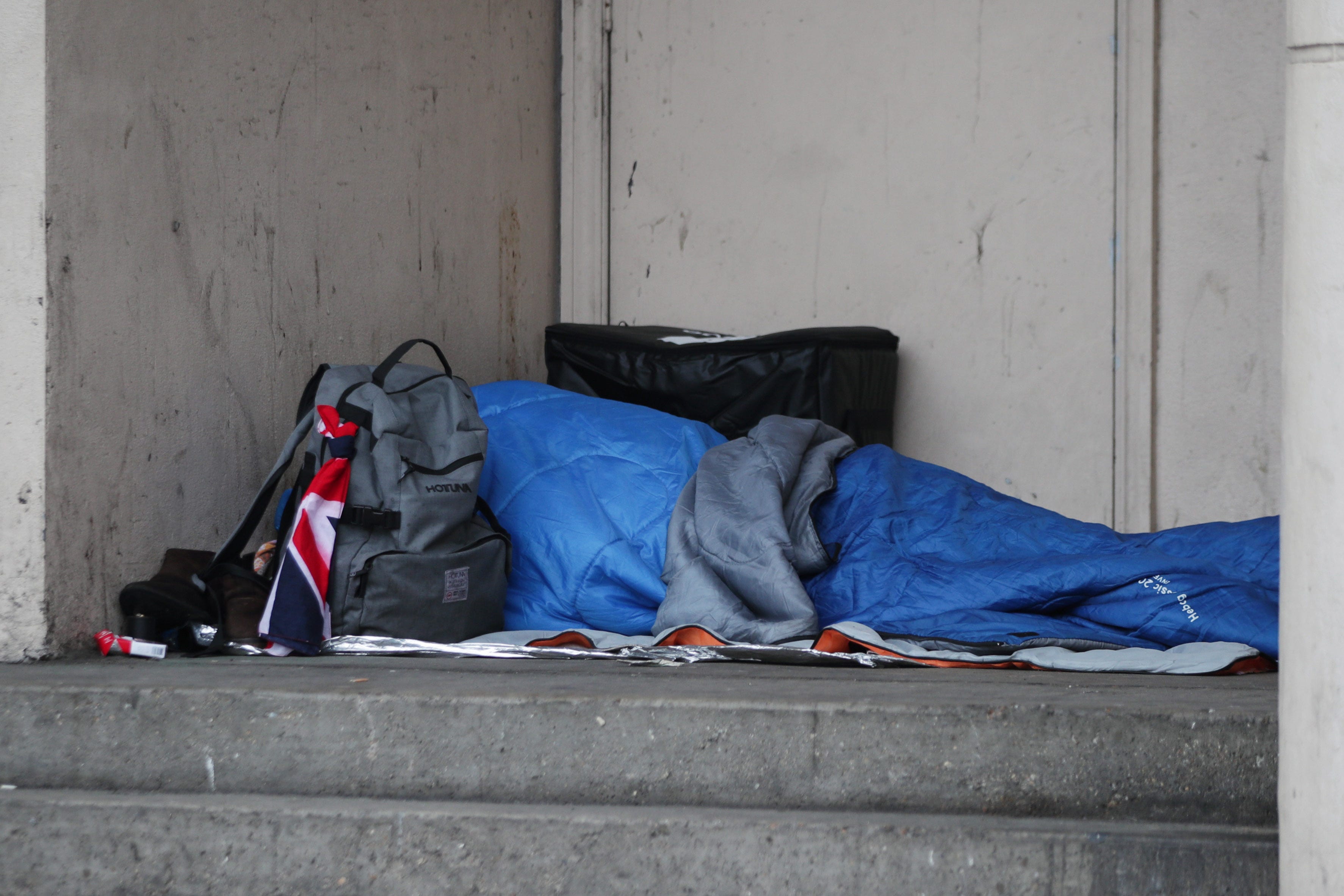Ministers facing revolt over plans to criminalise rough sleeping
Conservative former minister Sir Iain Duncan Smith is among those backing efforts to scrap new police powers to move on rough sleepers.

Ministers are facing a revolt from Conservative MPs over plans to criminalise homelessness, reports have suggested.
More than 40 Tory MPs are expected to revolt against plans in the Criminal Justice Bill which would allow the police to fine or move on “nuisance” rough sleepers.
According to the Times newspaper, senior Government sources have said the Bill has been “paused” while ministers negotiate with MPs from both the left and right of the Conservative Party concerned about the plans.
Business minister Kevin Hollinrake, meanwhile, appeared reluctant to say whether he supported the Bill as it stands, telling broadcasters it was “not within my auspices”.
He also emphasised it was important the Government used a raft of support measures to prevent rough sleeping and said he was interested to see what Rishi Sunak has planned.
Conservative former ministers Sir Iain Duncan Smith and Damian Green are among 10 Tories who have signed a series of amendments to the Bill aimed at countering the drive to criminalise rough sleeping.
Measures tabled by Tory MP Bob Blackman (Harrow East) would seek to ensure ministers fulfil their promise to repeal the Vagrancy Act 1824, the law which currently criminalises rough sleeping and begging.
The Government promised to do so when it passed the Police, Crime, Sentencing and Courts Act in 2022, but only when it found a suitable replacement.
Measures in the Criminal Justice Bill aim to provide this replacement, but are thought to be too widely drawn by the Tory rebels.
Mr Blackman told the Times newspaper he and his colleagues were urging the Government to think again.
“A lot of colleagues believe that the Bill as it stands is completely unacceptable because it would have the effect of criminalising people who have no choice but to sleep on the streets,” he added.
A second amendment from Mr Blackman aims to clarify when the police are able to use the new powers.
The amendment says police should be given guidance that “begging or sleeping rough does not in itself amount to unreasonable conduct”, and insists officers “should balance protection of the community with sensitivity to the problems that cause people to engage in begging or sleeping rough”.
The Bill was introduced to Parliament by Suella Braverman – who branded rough sleeping a “lifestyle choice” – when she was home secretary.
Asked by Times Radio whether he would back the Bill as it stands, business minister Mr Hollinrake said: “Those things are not within my auspices. I will be interested to see the legislation as it goes through and what the Prime Minister has planned.”
With more and more people being pushed to the brink from the increased cost of living, we need a compassionate approach, not one that threatens people with fines or imprisonment
Asked if it was right to arrest someone for so-called nuisance rough sleeping, Mr Hollinrake added: “What is the most important thing is we provide the resources to get people off the streets and there should be those places where people can go to.
“I don’t think that should be … that shouldn’t be optional for people, if there are places that people can go to off the streets, then those people should be off the streets, they shouldn’t be lying on the streets. It is not fair to other people in our town and city centres.”
The Liberal Democrats urged the Government to listen to backbenchers unhappy with the Bill.
Layla Moran, the Lib Dem MP who spearheaded the cross-party campaign to scrap the Vagrancy Act, said: “The heartless proposals in the Criminal Justice Bill risk bringing back the Vagrancy Act by the back door.
“The Government should listen to their own backbenchers and take a compassionate approach to tackling homelessness, instead of stigmatising and criminalising rough sleepers.
“Sleeping rough is not a lifestyle choice. Ministers should focus on tackling the root causes of this crisis, not scapegoating the victims of it.”
Matt Downie, chief executive of Crisis, the national homelessness charity, urged Home Secretary James Cleverly to “drop these cruel and unnecessary measures and focus on the real solutions” including building more social housing.
He said: “It should never have been Government policy to criminalise rough sleeping, so we would be thrilled to see the back of these deeply-damaging proposals that will do nothing to support people away from the streets.
“Through our frontline services we see the brutality rough sleeping inflicts on people’s lives. With more and more people being pushed to the brink from the increased cost of living, we need a compassionate approach, not one that threatens people with fines or imprisonment.”
A Government spokesperson said: “We are determined to end rough sleeping for good. That is why we have published a strategy to tackle the root causes of why people end up on the streets, backed by an unprecedented £2.4 billion.
“Nobody should be criminalised for simply having nowhere to live, which is why we committed to repealing the outdated Vagrancy Act, which was passed in 1824.
“We will replace this with new legislation focused on supporting people to get off the streets, while allowing local authorities and the police to address behaviour that can make the public feel unsafe, such as begging at cashpoints.”
Bookmark popover
Removed from bookmarks